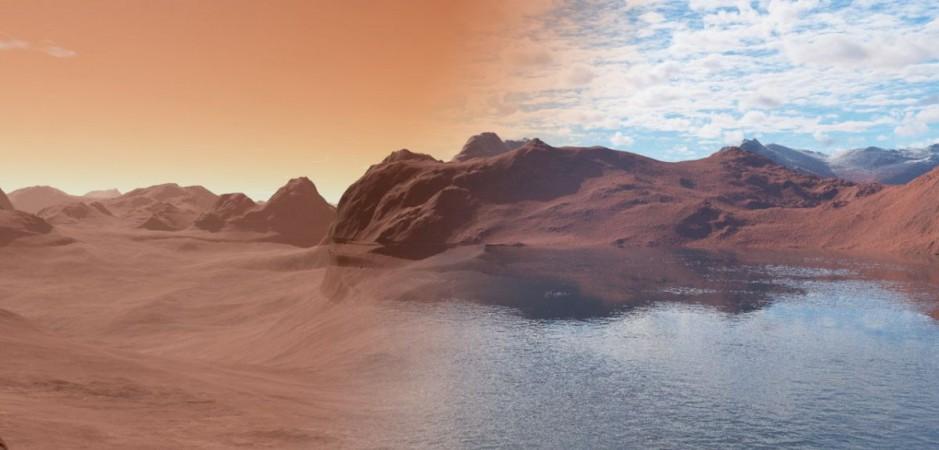
This new study proves that Martian surface was not as barren and frozen as it is now. Scientists have found evidence that proves that Mars' was a warmer and wetter planet with lakes and oceans.
So, what happened to all the water and where did it mysteriously disappear? New research proves that the Martian surface might have absorbed it, making the Red Planet uninhabitable now.
Scientists believed that water flowed freely on Mars, but nobody knew where it disappeared. Earlier researchers pointed out that water evaporated into space after the collapse of the planet's magnetic field billions of years ago.
Now, a new study claims that basaltic crusts formed by lava may have absorbed all the water.
"People have thought about this question for a long time, but never tested the theory of the water being absorbed as a result of simple rock reactions. One reason why Mars lost all of its water, could be in its mineralogy," Dr Jon Wade, NERC Research Fellow in Oxford's Department of Earth Sciences, said.
Dr Jon with the help of his team used computer modelling to understand "how much water can be removed from the Martian's surface through reactions with rock." They came to the conclusion that the basaltic crusts can hold approximately 25 percent more water than those on Earth.
"The Earth's current system of plate tectonics prevents drastic changes in surface water levels, with wet rocks efficiently dehydrating before they enter the Earth's relatively dry mantle. But neither early Earth nor Mars had this system of recycling water.
"On Mars, (water reacting with the freshly erupted lavas' that form its basaltic crust, resulting in a sponge-like effect. The planet's water then reacted with the rocks to form a variety of water-bearing minerals. This water-rock reaction changed the rock mineralogy and caused the planetary surface to dry and become inhospitable to life," he explained.
However, this discovery might not help future colonists because researchers believe that the water could never be extracted.

















